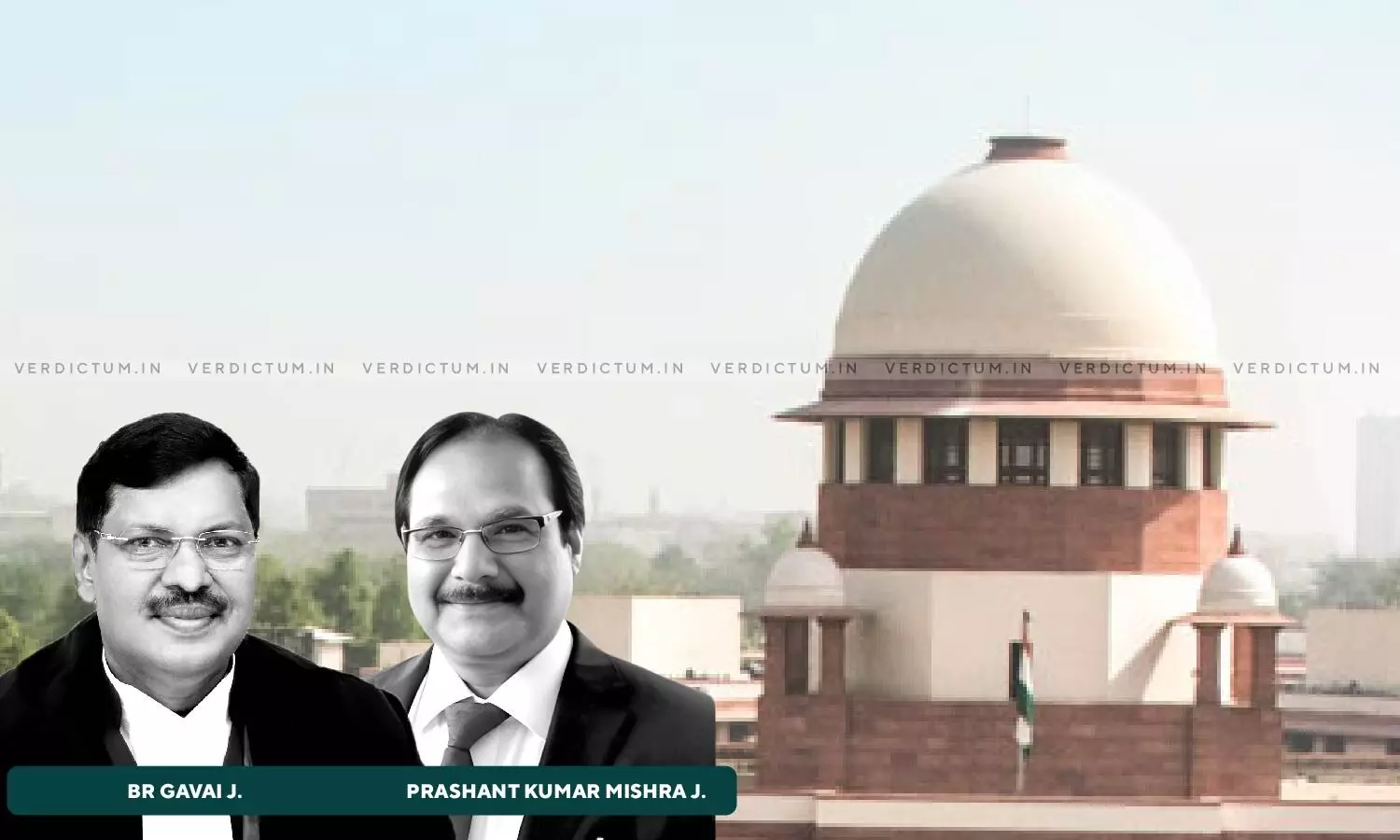
Prosecution Utterly Failed To Prove Incriminating Circumstances Beyond Reasonable Doubt- SC Acquits Murder Convicts
 |
|The Supreme Court recently acquitted the appellants convicted of murder setting aside the judgment passed by the Delhi High Court observing that prosecution had utterly failed to prove the case beyond reasonable doubt.
The two-judge Bench of Justice B.R. Gavai and Justice Prashant Kumar Mishra observed that "We find that the prosecution has utterly failed to prove the case as they need to prove the incriminating circumstances beyond reasonable doubt. The evidence with regard to last seen theory is totally unreliable. The evidence regarding the CDRs also is one which does not inspire any confidence. As such, we find that the appeals deserve to be allowed."
The appeals challenged the August 5, 2014 judgment of Delhi High Court which affirmed the May 17, 2013 judgment of the trial court, that had convicted the original three accused under Indian Penal Code (IPC) Section 302 read with Section 34, sentencing them to life imprisonment.
On September 10, 2009, at around 04:15 pm, complainant Surat Singh, the deceased Hoshiyar Singh's brother, discovered the deceased dead on a cot at his house. Jai Singh, the deceased's elder brother, also arrived at the scene. The deceased was taken to the hospital but was declared dead. An FIR was filed, suspecting Prem Singh, the deceased's son, due to a property dispute. The accused had allegedly assaulted the deceased on previous occasions and made threats. Prem Singh fled but was apprehended on September 12, 2009. During interrogation, he named his associates Kamal Kishore and Manoj (the appellants). The appellants were subsequently apprehended. Kamal Kishore led to the recovery of a rusted iron rod, while Manoj led to the recovery of a sweater used to strangle the deceased.
Following investigation, a charge-sheet was filed against all three accused in the Court of Judicial Magistrate. The case was then committed to the Sessions Judge. The trial court's May 17, 2013 judgment convicted all three accused under IPC Section 302 read with Section 34, sentencing them to life imprisonment and imposing a fine of Rs. 50,000 each.
Advocates R.K. Kapoor and K. Sarada Devi, appeared for the Appellant and Advocates Sonia Mathur and A.K. Panda, appeared for the Respondent.
Counsel for the appellant argued that this case hinges on circumstantial evidence. He emphasized that for a conviction based on circumstantial evidence to be valid, the prosecution must establish an unbroken chain of circumstances. It was pointed out that the prosecution relies significantly on the testimonies of Jai Singh (PW-20) and Naresh Kumar (PW-21).
Contrarily, the opposite counsels argued that both the High Court and the trial court had properly assessed the evidence and, in a concurrent manner, convicted the appellants. They stressed that no interference was warranted in the current appeals.
It was noted that Naresh Kumar (PW-21) had testified that he had seen accused Prem Singh by his vehicle near the deceased's room on the incident day, pressing the accelerator and making loud sounds. He saw two boys leaving the deceased's room, to which Prem Singh referred as tenants. He went to his shop afterward. He was later called by the police, and he identified the accused Manoj and Kamal Kishore as those he saw leaving the scene. Jai Singh (PW-20), another witness, corroborated this version. However, his credibility was questioned due to inconsistencies in his testimony.
The High Court's reliance on the witnesses identifying the accused in the dock, despite prior police station identification, was not appreciated by this Court. Additionally, the Call Detail Records (CDRs) were contested as evidence. One of the mobile numbers in question was not even registered to the accused, the Court noted.
The case rested on circumstantial evidence, and the principles from Sharad Birdhichand Sarda v. State of Maharashtra, (1984) 4 SCC 116 were cited to emphasize the need for conclusive evidence.
“Undisputedly, the present case is a case which rests on circumstantial evidence. The law with regard to conviction based upon circumstantial evidence is very well crystalised in the case of Sharad Birdhichand Sarda v. State of Maharashtra”
The Court observed, "It can thus be seen that this Court has held that the circumstances from which the conclusion of guilt is to be drawn should be fully established. It has been held that the circumstances concerned “must or should” and not “may be” established. It has been held that there is not only a grammatical but a legal distinction between “may be proved” and “must be or should be proved”. It has been held that the facts so established should be consistent only with the hypothesis of the guilt of the accused, that is to say, they should not be explainable on any other hypothesis except that the accused is guilty. It has been held that the circumstances should be of a conclusive nature and tendency and they should exclude every possible hypothesis except the one sought to be proved, and that there must be a chain of evidence so complete so as not to leave any reasonable ground for the conclusion consistent with the innocence of the accused and must show that in all human probability the act must have been done by the accused."
Accordingly, the Court acquitted the Appellants and directed for their release.
Cause Title: Kamal v. State (NCT of Delhi)
Click here to read/download Judgment